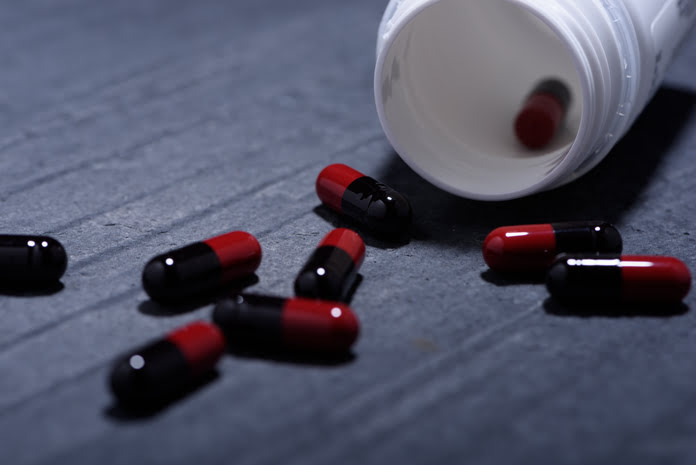Corvus Pharmaceuticals (NASDAQ:CRVS) is a clinical-stage biotech business situated in Burlingame, California that was launched in 2014. The business is concentrating its efforts on ITK inhibition as a unique approach to cancer immunotherapy.
CPI-818 Treatment for T-Cell Lymphoma
CPI-818, the company’s flagship chemical, inhibits ITK, similar to the blockbuster medicine ibrutinib. This pharmaceutical candidate is being developed for a variety of indications, including T cell lymphoma (TCL), atopic dermatitis, and autoimmune and allergic diseases.
The ITK Pathway is implicated in a variety of disorders. ITK inhibition increases Th1 cells while decreasing Th2 cells. This has an anti-cancer effect as well as a reduction in immunity in autoimmune illnesses. CPI-818, which inhibits T cells via the ITK route, has an anti-cancer impact similar to ibrutinib, which has global annual sales of more than $2.5 billion.
The Issue
T-cell lymphoma (TCL), which has an extremely dismal prognosis, is the primary indication for CPI-818. After the initial relapse or progression of this cancer, the median overall survival rate is only 6.5 months. FDA-approved medicines have demonstrated an objective response rate (ORR) of less than 30% and a PFS of roughly three months. Even with an allogeneic stem cell transplant, progression-free survival is only 30% after three years.
The Possible Solution
CPI-818 reduced tumor development and boosted CD8+ T cell infiltration in preclinical experiments. It also demonstrated anti-cancer activity in a phase 1B trial in PTCL. Absolute lymphocyte count, or ALC, was discovered to be a predictive factor in the study. In patients with ALC >=900, the ORR was around 55%, and the median PFS was 19.9 months. For up to 13 months, a patient with a severely resistant condition demonstrated a partial response. Another patient with refractory illness experienced a complete response that lasted 25 months. The clinical efficacy in terms of PFS (19.9 months) was substantially higher than the currently licensed medicines’ 3 months.
Additional patients with PTCL and three or fewer prior therapies and an ALC biomarker count of more than 900 are being included in the phase 1b trial. ORR is the primary endpoint of this trial. Data is expected in the second quarter of this year. The business is meeting with the FDA to explore a pivotal phase 3 trial that will compare the medicine monotherapy to the standard of treatment. PFS will be the primary outcome of this Phase 3 trial.
Additional Products Are in the Works
Ciforadenant, an A2A inhibitor being developed in a phase 2 trial in frontline renal cell carcinoma, is the second chemical in the pipeline. This year’s data is expected.
Management
Richard Miller, the company’s CEO, was the co-founder and CEO of Pharmacyclics, where he supervised the original discovery and development of the blockbuster medicine ibrutinib.
Accounting and Valuation
Cash reserves are estimated to be $24 million, which will suffice till the upcoming Q2 data. In the first quarter of 2023, the operating cash burn rate was around $29 million. There is no outstanding debt. TCL is anticipated to raise financing following the presentation of Q2 statistics.
T-cell lymphoma accounts for 15% of all non-Hodgkin lymphomas in the United States. Because this cancer is very refractory, the annual death rate is around 7000 people in the United States, which is the target market for CPI-818. This indicates a $1 billion US income possibility at a cost of $150,000 per year. The EV/peak sales ratio for biotech companies is 7. The company’s present enterprise value is negative because investors are disregarding the pipeline. Even with a 20% market share, an EV/peak sales ratio of 7, and a 15% cost of capital, the company’s enterprise value is $457M.
Orbimed Advisors, BVF, and Millennium management are among the major institutional investors in the stock. The average analyst price objective is $3.83, or a 113% increase.
My investment timeline is at least one year till the above two data releases. Given the size of the TCL market, this is also an excellent long-term investment. The FDA is scheduled to issue recommendations on the pivotal Phase 3 investigation in TCL in Q3, with data expected by 2025.
Risks associated with the investment include unimpressive data from current trials, adverse effects, and so forth. The company has limited financial reserves and is likely to raise funds following the presentation of Q2 results. This could lead to a drop in the stock price. The stock is volatile and has a low daily average volume. Investing in biotech, pharmaceutical, and medical device stocks is risky and may not be appropriate for all individuals. This note is my own opinion and does not constitute professional investment advice.
Featured Image: Freepik @ alexphotos









